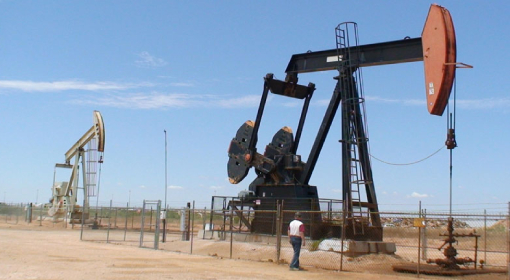Dubai: – In 2014, the Arab allies’ coalition had started a military conflict against the Houthi rebels in Yemen. At that time, the United States had refused to participate in the war, saying that this was not their war. However, the Russia-Ukraine war has flared up over the last few days. Hence, the fuel rates are scaling record levels with each passing day. The United States demanded that the Middle East countries relieve European countries by increasing fuel production. But international analysts have claimed that the Middle East countries dismissed this US demand saying that this is not their war.
 Moreover, the Russia-Ukraine war, ongoing for the last 11 days, has pushed the crude oil rates to $130 per barrel. The European countries are the worst hit by this increase and the United States and European countries are appealing to the OPEC members to increase production to bring the fuel prices under control. Last week, on Wednesday, the western countries presented their demand before OPEC and other affiliated countries.
Moreover, the Russia-Ukraine war, ongoing for the last 11 days, has pushed the crude oil rates to $130 per barrel. The European countries are the worst hit by this increase and the United States and European countries are appealing to the OPEC members to increase production to bring the fuel prices under control. Last week, on Wednesday, the western countries presented their demand before OPEC and other affiliated countries.
But Saudi and UAE, the leaders of OPEC have together dismissed this demand of the western countries. The Arab countries from OPEC refused the demand of the western countries. They said, ‘The current instability is not because of changes in the market fundamentals. This instability is because of the current geopolitical developments.’ Global analysts have cited a change in the attitude of the Arab-Gulf countries, which once danced to the US tunes.
 Hasan Alhasan, an analyst from the International Institute for Strategic Studies (IISS) from the United States, claimed, ‘The Middle Eastern countries are testing their capability to safeguard their national interests and acquiring strategic autonomy.’ The policies of the Gulf countries were dependent on the western countries for many decades. Alhasan added that the Arab countries are trying to adopt an autonomous policy for the first time.
Hasan Alhasan, an analyst from the International Institute for Strategic Studies (IISS) from the United States, claimed, ‘The Middle Eastern countries are testing their capability to safeguard their national interests and acquiring strategic autonomy.’ The policies of the Gulf countries were dependent on the western countries for many decades. Alhasan added that the Arab countries are trying to adopt an autonomous policy for the first time.
The rates for fuel gas have flared up in the international market given the sanctions imposed by the United States and its western allies against Russia. International analysts pointed out that Russia is the second-largest exporter of natural gas after Saudi Arabia. If the Arab countries increase oil production given this, the rates will decline, but this will hit the economies of the OPEC members. Alhasan pointed out that the Arab nations have refused to increase production, saying that this is not our war.
Meanwhile, the Biden administration has still not adopted a tough stand against the countries refusing to accept the US demand. Alhasan claimed that the Biden administration may exert pressure on these countries in the coming times. Alhasan said that it would be important to see how the Arab countries tackle that situation.














